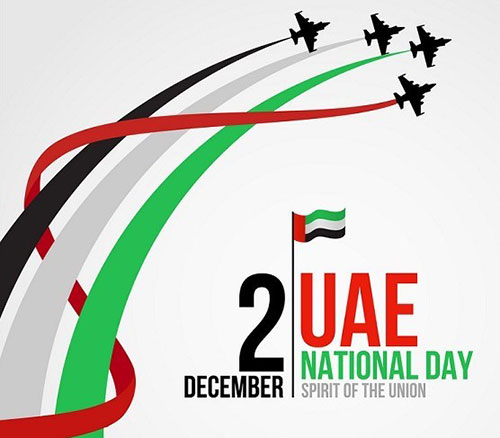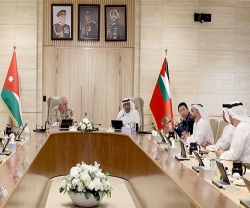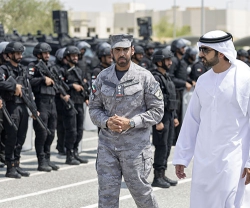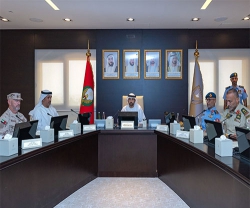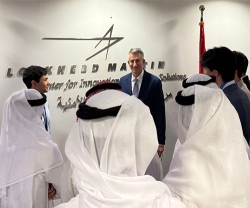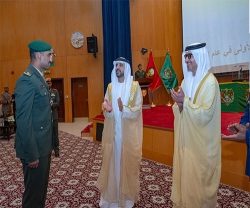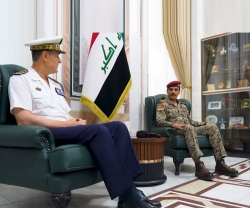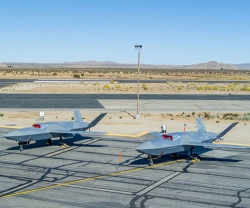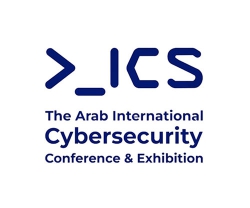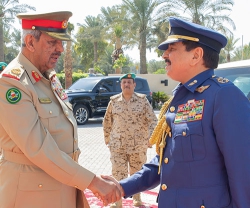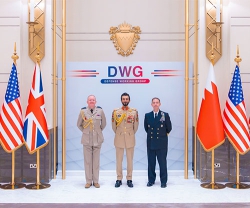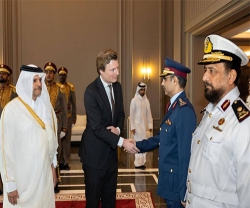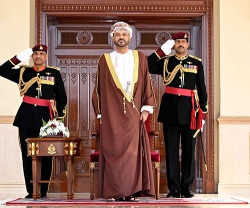On 2nd December, 2020, the UAE is celebrating its 49th National Day. Despite the global challenges posed by the COVID-19 pandemic in 2020, the UAE made this year many achievements and breakthroughs, Emirates news agency WAM reported.
The country’s successes in key strategic sectors such as space and energy were remarkable. The launch of the Hope Probe to Mars and the announcement of the first Arab project to explore the Moon grabbed the global attention.
The UAE officially joined the nuclear energy club with the successful operation of the Barakah Nuclear Energy Plant's first nuclear reactor that generates environmental-friendly electricity. The discovery of new natural gas and oil fields was also a major development in energy sector.
The UAE contributed to the global fight against COVID-19 by extending its humanitarian presence across the globe to provide urgent medical aid to around 120 countries. Its local work in addressing the pandemic is one of the most successful in the world, proven by low national infection rates and the number of tests performed surpassing the country’s total population.
The UAE is continuing to promote tolerance and establish stability and coexistence in the region, and its related efforts were crowned by the signing of a peace accord between the UAE and Israel, while continuing to call for tolerance and denouncing extremism across the world.
In 2020, the year of preparations for the next fifty years, the UAE has secured its place among the top ten countries, in terms of global competitiveness, and witnessed the issuance of new laws and legislation, reinforcing women’s achievements and consolidating the economic and social stability of Emirati citizens and residents.
The UAE also adopted the Federal Budget 2020 to the tune of AED58.113 billion, while the country’s banking system’s assets amounted to AED3.252 trillion in the third quarter of 2020, marking a 5.4% increase compared to the same period in 2019.
In 2020, the UAE consolidated its position among the group of leading countries in the field of space explorations, by accomplishing historic achievements and proving that there are no limits to the ambitions of its leadership and people.
The launch of the Hope Probe to explore Mars on 20th July, 2020, was the key Emirati achievement in the space sector this year, placing the country within the group of seven countries that are studying the red planet.The world is waiting for the Hope Probe to reach Mars at 19:42 on 9th February, 2021.
In September 2020, the UAE’s achievements were accelerated through the launch of MeznSat, the country’s first environmental satellite. The country has launched 11 satellites in the past 20 years. The UAE also announced a comprehensive project to explore the Moon, which includes a 100 percent indigenously built lunar orbiter, called Rashid, as the UAE becomes the fourth country in the world to participate in lunar discoveries for scientific purposes, after the US, the former USSR and China.
In October, 2020, the UAE announced a new satellite, MBZ-Sat, which is the second satellite to be fully manufactured by Emirati engineers, after Khalifa-Sat.
Nuclear Energy In 2020, the UAE began producing electricity from nuclear energy, when the Emirates Nuclear Energy Corporation, ENEC, announced that the Nawah Energy Company - the company responsible for maintaining the Barakah Peaceful Nuclear Plant - began the successful operation of the plant’s first nuclear reactor. This was announced after the process to link the plant’s reactor and the main national electricity network was completed.
On 18th November, 2020, when the plant’s first reactor reached 80% of its energy production capacity, the UAE become the first country in the Arab region, and the 33rd in the world, to safely produce electricity from nuclear energy in a credible and environmental-friendly way. The plant will assist the country’s efforts to save electricity and reduce carbon emissions resulting from the production of electricity. When the plant’s four reactors are fully operational, they will produce 5.6 gigawatts of energy and reduce 21 million tons of carbon emissions on an annual basis.
For the fourth consecutive year, the UAE has led Middle Eastern and North African countries in the 2020 World Competitiveness Annual Report issued by the IMD Business School in Lausanne, Switzerland. The UAE ranked ninth in the world in global competitiveness.
The UAE also ranked first in the world in 23 indexes, and ranked among the top five countries in the world in 59 indexes, as well as among the top 10 in the world in 106 indexes, out of the total 338 indexes in the report.
The UAE’s key global role was highlighted by its efforts to combat the coronavirus, confirming the humanitarian aspect of its foreign policy. The UAE provided urgent humanitarian and medical aid to some 120 countries, benefitting millions of frontline medical workers fighting the virus.
The UAE created its own model of managing the coronavirus crisis, from the confrontation phase to the recovery stage. The country was among the first to overcome the repercussions of the crisis and turn challenges into opportunities for achieving growth, development, competitiveness and sustainability.
The UAE reshuffled the Federal Cabinet to prepare for the post-COVID-19 era, which will require a government that is more proactive, flexible and capable of adapting to any conditions. The reshuffle included the establishment of new Ministries, most notably the Ministry of Industry and Advanced Technology, which is in charge of developing the national industrial sector, as well as the appointment of three Ministries that are part of the Ministry of Economy, and a Minister of State for Artificial Intelligence, Digital Economy and Teleworking Applications, in addition to the launch of the UAE Government Media Office.
On the economic front, the UAE succeeded in overcoming the effects of the COVID-19 pandemic, controlled its repercussions, and maintained its prominent position among the world’s top economies and investment destinations around the world. The country was among the first to launch initiatives and economic incentives to boost the economy, support all economic sectors, and help them meet the challenges of the global crisis.
The comprehensive support plan announced by the Central Bank of the UAE worth AED100 billion and other financial support packages adopted by the Federal Government and local governments, have boosted the Emirati economy, ensured the continuity of businesses, and protected customers and companies.
In 2020, the UAE’s banking system continued its outstanding performance, despite the slowdown witnessed by many economic sectors in the Gulf Cooperation Council and the Middle East. Total banking sector assets surged to AED3.252 trillion in the third quarter of 2020, marking a 5.4% increase compared to same period in 2019.
The UAE also approved the 2021 General Budget of the Union, with an estimated total expenditure amounting to AED58.113 billion. The budget aims to raise living standards and provide the country’s citizens and residents with dignified lives.
In November 2020, the Supreme Petroleum Council (SPC) announced the discovery of substantial recoverable unconventional onshore oil resources, estimated at 22 billion stock tank barrels (STB), and an increase in conventional oil reserves of 2 billion STB in the Emirate of Abu Dhabi.
The UAE’s sports sector proved its readiness to adapt to the emergency conditions caused by the coronavirus pandemic, and was among the sectors that began recovering and gradually returning to normal, while implementing precautionary measures.
The UAE’s sporting achievements are continuing in 2020, with the national cycling team winning the first place in the Tour de France for the first time in history. The UAE Jiu-Jitsu Team also led the rankings ahead of 63 countries at the Abu Dhabi Jiu-Jitsu Grand Slam Jiu-Jitsu World Tour, winning 86 medals. Additionally, the UAE Fencing Team won the first place in the Arab Youth Fencing Championship held in Bahrain, after winning 18 medals.

